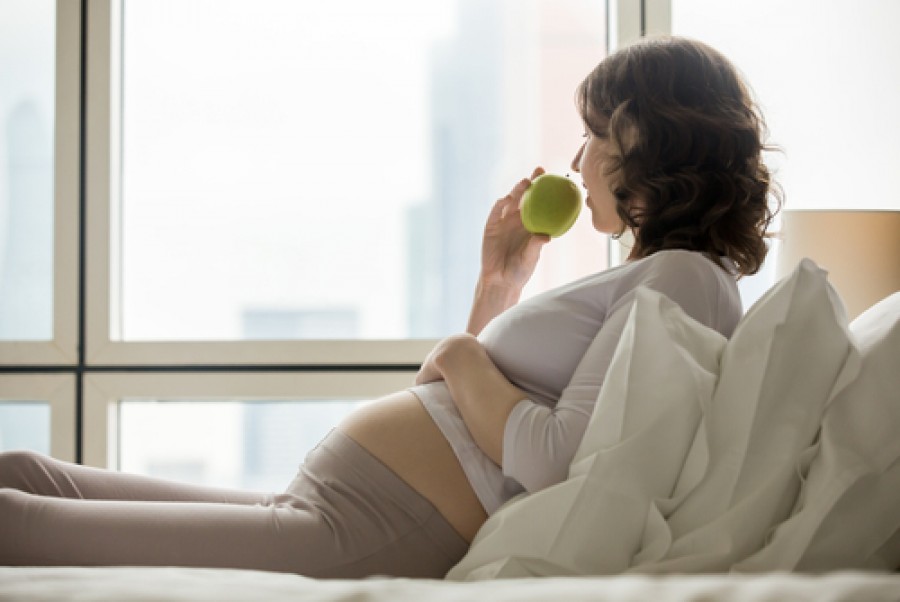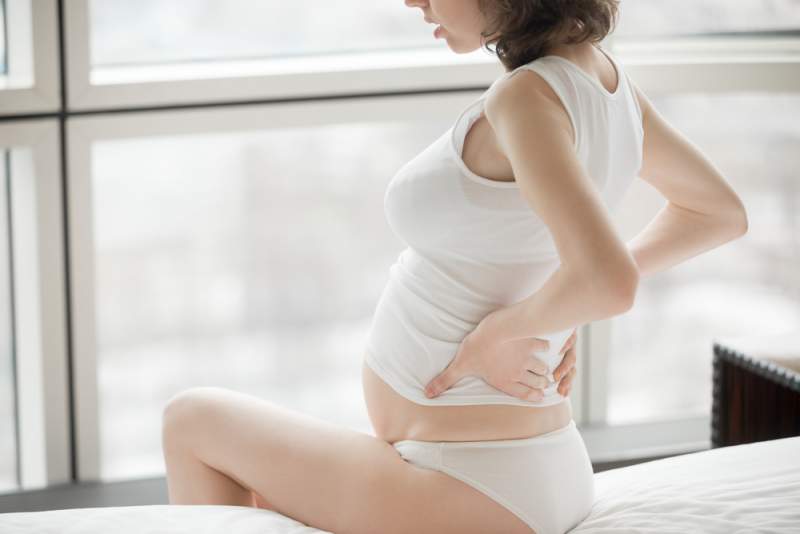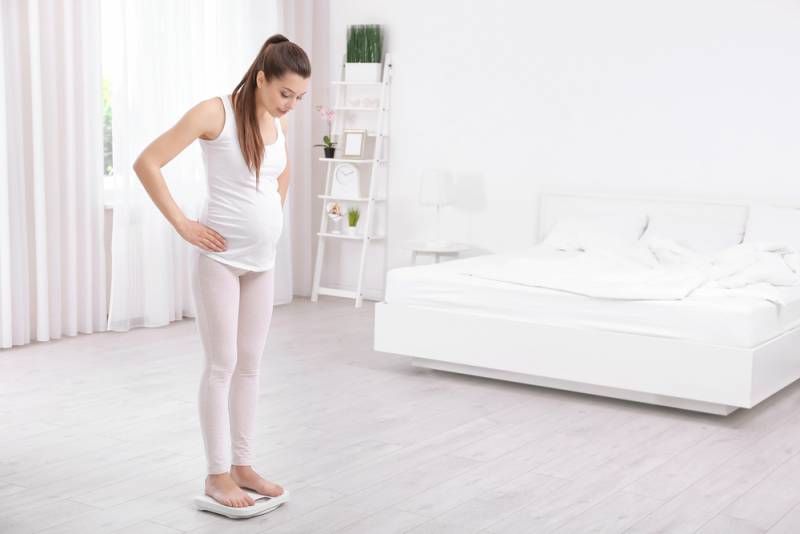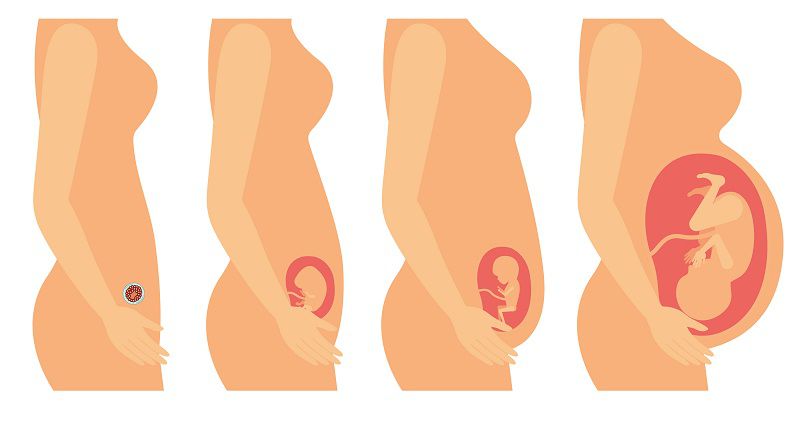Second Trimester of Pregnancy: Things To Know

Following the roller coaster ride that is the first trimester, the middle three months of pregnancy are a comparative breeze.
In the second trimester of pregnancy, the mother’s baby bump becomes very prominent compared to the first trimester, and you are more likely to feel comfortable with your pregnancy and proud to show it off.
This trimester is normally safe and enjoyable as you get rid of all the first trimester symptoms and now you actually welcome your pregnancy. The real feelings of being a mother can often develop in the second trimester and a solid attachment can form with your foetus (but don’t be worried if it doesn’t).
This trimester is when everybody around you gets to know you are pregnant by looking at your gorgeous bump.
You may find that strangers start to make random comments and may even touch your stomach. This is a common problem with humans and you might just need to ignore it as best you can.
What happens in the Second Trimester of Pregnancy?
Second trimester begins on the 13th week of pregnancy and ends on the 28th week of pregnancy.
Signs and Symptoms in the Second Trimester

The second trimester of pregnancy is the period of pregnancy when both the mother and the baby experience lots of frequent changes and most of the growing and developing occurs.
In the second trimester of pregnancy, the mother’s baby bump becomes very prominent compared to the first trimester of pregnancy.
You will most likely have much more energy than in the early stage of your pregnancy and should probably use this time to shop and plan for your coming child. You will look and feel better during these months, with a healthy glow to your face, skin and hair because of all the super baby-making hormones you are generating.
A few other noticeable signs and symptoms are also observed in the pregnant mother in the second trimester. These signs and symptoms include:
- Leg cramps
- Heartburn and indigestion
- Frequent need to urinate
- Bleeding gums because your body is creating and pumping extra blood at this time
- Back pain due to the increased weight you are putting on
- Increased appetite and food cravings
- Tiredness and fatigue
- Susceptibility to minor coughs and colds due to a reduced immune system
- Infrequent baby kicking and other movements
- Warm uterine contractions lasting for 1-2 minutes
You might feel a little bit superhuman during this time, and feel like you can do anything. This is a time when pregnant women’s bodies have been known to play tricks on them, making them stretch to limits greater than they should. Be careful not to over exert yourself, hurt yourself or push your body beyond what it would normally do, even if you feel capable of anything. Many injuries happen during this time.
You may also start to feel an effect called baby brain, which has not been scientifically proven, but which pregnant women generally know is true. It is most likely because you have a million extra things to think about, your brain starts to push some other things out of the way.
Expected weight gain

Weight gain from this period on will start to steadily increase and then remain constant throughout third trimester of pregnancy.
Women should ideally gain about 2 kg a month during the second trimester, or no more than 6 kg all up. A weight gain of significantly more than 6 kg may indicate an underlying medical concern, or it may be a simple case of trying to eat for two (when this really isn’t recommended).
It is most likely that your weight is measured and documented on each medical visit, and so your obstetrician will be able to manage your weight and health with extra guidance if your need it.
Recommended diet

Stick the same healthy diet that you should have started in the first trimester. Eat the nutrients for two people, not the quantity of food.
This means:
- Full fat dairy
- Fresh and colourful fruit and vegetables
- High sources of iron such as leafy greens, meat, legumes and nuts
- Lots of water
- No alcohol and as little caffeine as you can survive on
What is happening to your baby?

Because your baby is fully-formed by the end of the first trimester, the danger of miscarriage greatly drops from then on.
In terms of development, your baby is extra busy during this time. Things like the nervous system and genitalia become more formed during the second trimester, and things like eyelids and eyelashes become more defined.
Your baby starts to move around more and because he is growing, you will start to feel these movements. It will be hard to tell at first if this is the baby or just gas.
The heartbeat will be strong enough to hear now from outside the body.
Your baby is growing hair and is covered with a cheese-like substance called vernix.
By the end of this trimester, your baby will weigh around 1kg and be around 30cm long.
You can see veins through his skin, and fingerprints are now formed. Your baby may start to open his eyes. He will do things like sucking his thumb, stretching, kicking and may get hiccups.
Possible Complications

Usually this trimester is free of complications and symptoms but in some rare cases, women may present with complications like preterm birth, spontaneous abortion, bleeding and more. If you have any symptoms or feel anything of concern, do not hesitate to contact your obstetrician.
Babies born after the 23rd week have some chances of survival with great medical care, but ideally your baby should be staying tucked away in your womb throughout the middle three months.
Medical Tests during Second Trimester of Pregnancy

During the 20th week of pregnancy, your doctor will usually undertake an ultrasound to check the baby is growing and developing as he should be. You can usually find out the gender of your baby at this time if you want to.
1. Chorionic Villus Sampling (CVS), Amniocentesis and Quad screen
These tests may help women to exclude some genetic abnormalities such as Downs syndrome and infant neural tube defects.
Not everybody has to do these tests, they are optional at this point. It may be that only women with previous abnormal birth or genetic abnormalities in their family history may want to go through these tests.
It is important to note that some tests carry a small risk of rupture of membrane, and possible preterm birth, so you should discuss the benefits and risks of these tests with your doctor before going ahead.
2. One Hour Glucose Tolerance Test (OGTT) and HBA1C
This test is performed during the 28th week of pregnancy.
HbA1c: detects gestational diabetes and allows your doctor to take steps to gain quick control over abnormal sugar levels that may be harmful for both mother and the baby.
Common Questions
1. What should you wear?
As a pregnant woman, you can wear whatever you like. Some mothers won’t show a lot for some time and can get away with their regular clothes, or just by letting out some buttons or seams.
For most women, however, this middle trimester is when they really start to show in the belly region, and can gain some size in other areas as well. For your own style and comfort, and because for most women this is fun during their first pregnancy, it may be time to start browsing for maternity wear.
You may also find that your feet swell, and you need to wear more stretchy shoes or go up a size in your regular ones. It may be a lot more comfortable for you to wear flat shoes from now on; this can be better for your back and hips, and safer as your centre of gravity starts to shift.
2. What should you be doing this trimester?
Continue your multi-vitamins and your healthy diet plan as now your baby is growing at a fast pace. It is important that you keep your own body strong too, in order to carry your baby for a least a few more months from now.
Start planning and shopping for your baby, narrow down your colour choices if you like as now you may know the gender of your baby.
Try not to buy absolutely everything you want to because your judgement could be led by hormones and emotions more than practical budgeting. Almost everything bought for a baby could be done without in hindsight, so make bigger purchases carefully.
Look after yourself and make sure that your partner looks after you too. Ask for backrubs or treat yourself to a pregnancy massage.
Continue to do some gentle exercise and do everything you can to keep fit and healthy at this time. Keep up your regular doctor’s appointments, and make sure you see a dentist as well, to look after every aspect of your body.
3. Is sexual intercourse safest at this time?
Yes! Sex is safe in the second trimester of pregnancy. Your body and uterus are strong enough to protect the foetus inside you. You may also find that during the second trimester you have an increased sexual drive, and you might it more enjoyable during this time.
Good luck getting through the second trimester, and we will see you again for the third!


